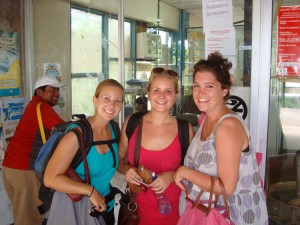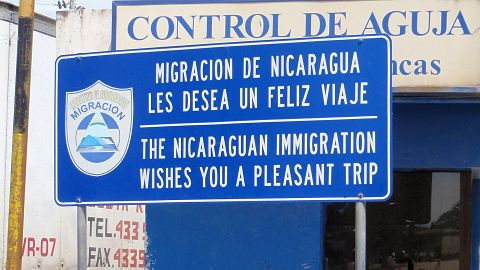Costa Rica English Teaching News – For most English teachers in Costa Rica working under the table is an unsettling reality. The thought of moving abroad to work in a country where you will not be a recognized worker is not something that would land near the top of many to do lists.
 While it can be a point of anxiety and stress for those that haven’t done it before, once in Costa Rica it is easy to see that everyone does it and it’s not really a big deal. From a legal perspective, ESL teachers are often given a free pass as they are providing a service to the nation’s population that the native population cannot provide to the same level.
While it can be a point of anxiety and stress for those that haven’t done it before, once in Costa Rica it is easy to see that everyone does it and it’s not really a big deal. From a legal perspective, ESL teachers are often given a free pass as they are providing a service to the nation’s population that the native population cannot provide to the same level.
Packing, traveling, where to go, safety, and passport stamps are all points that may leave a teacher sleepless a few nights before their trip. However, the silver lining of the unsettling nature of illegality for the English teacher in Costa Rica is it provides that same teacher the opportunity to do what many arrived to do in the first place: travel.
Any tourist is allowed to be in Costa Rica for up to 90 days of their original arrival. After this point they are considered to have overstayed their visit and can be subject to a variety of penalties based on different factors. As a result, English teachers embark on what is deemed ‘the visa run’- also called a mandatory vacation – every three months in order to renew their tourist visa and then return to their teaching position in Costa Rica.
The time you need across the border varies depending on who you talk to. When I arrived in Costa Rica over three years ago the company line was 72 hours. Nowadays some will tell you that length is still standard while others will claim you only need a few hours. Regardless of duration, the visa run is necessary and, if you’re going to go all the way outside of Costa Rica, you might as well enjoy yourself.
Where should you go?
Most choose options of convenience. This means going to border towns in either of Costa Rica’s neighbors of Panama or Nicaragua. Both offer diverse and interesting locations with a range of places to see and things to do. This column will focus on Costa Rica’s northern neighbor, Nicaragua.
Nicaragua is a large and beautiful country filled with incredibly nice people. It is also the second poorest nation in the western hemisphere, next to Haiti, and thus incredibly cheap for foreigners. The three most popular visa run locations in Nicaragua are: San Juan Del Sur, Grenada and Ometepe.
San Juan Del Sur is your typical beach town. Located on the pacific coast and not more than thirty minutes from the border it is easily accessible and a great place to hang out for a few days of R&R and away from your teaching job. Surfing isn’t the best right in town, but there are a number of high class beaches nearby with waves to challenge even the advanced surfer. It is very touristy so a lot of the locals speak English. On this trend, it is very easy to meet other travelers as it is a very well known attraction and collects travelers from all over the globe.
Grenada is about two hours by bus north of the border and is a beautiful Central American colonial town. Filled with art and history from the colonial era of Central America, it’s a great place to spend a day or two – but not three. Grenada is many things – deathly hot being one of them – and this includes boring after more than 48 hours. There is beautiful architecture, church towers to climb and even a fairly diverse nightlife. Two days though is all you will need here.
Ometepe is also a great option for your visa run. An island located in beautiful Lake Nicaragua, it is perfect for the nature lover. There is not much, if any, civilization. If you love hiking, climbing volcanoes and becoming one with your surroundings, Ometepe is for you. Given what it is, most combine Grenada and Ometepe into one visa run. This is in part due to their close proximity and also due to spending more than two days in either place is usually sufficient.
Be sure to check out my next column, where I’ll discuss some popular destinations in Costa Rica’s southern neighbor, Panama.
If you want more information about teaching English in Costa Rica or getting your TEFL or TESOL certificate in Costa Rica feel free to contact Andrew at the Global TESOL College or email andrew@globaltesolcostarica.com
Originally from Toronto, Canada, Woodbury is the academic director of Global TESOL College Costa Rica , a contributor to radio program This Week in Costa Rica (http://thisweekincostarica.com/), and an independent writer based in Costa Rica.

